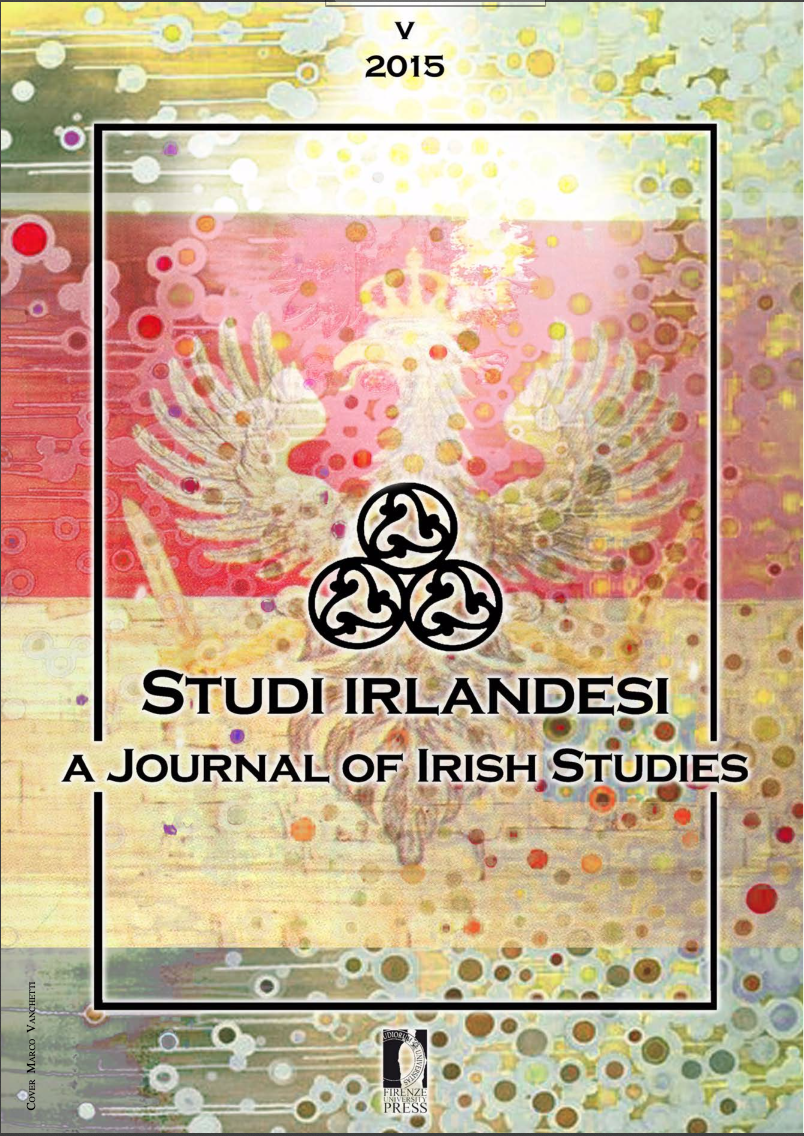Pubblicato 2015-06-17
Come citare
Abstract
In Waiting for Godot (1953) Beckett draws upon a non-temporal stasis that has paralyzed the nation over the past decades, and demystifies such a paralysis by structuring the play around not only a fixed milieu and an unnamable saviour but also a widespread unwillingness in appreciating the urgency of this dominant spirit of stasis. I argue the roots of such severe pessimism, formlessness, and radical stasis as dominant elements in the works of Irish moderns can be found in a dichotomous perception of modernism and its emergence and development in post-independence Ireland. The rise of the State and their neoconservative politics of formation appear as internal forces that obstructed a proper appreciation of Irish modernism inside and outside Ireland. By exploring the roots of modernism in post-independence Ireland, and the conflict between modernism and the rise of a neocolonial State, this essay examines a critical and ideological reticence within the nation which considers Irish modernism as a sub-category of the movement rather than an independent variety, precluding a reading of Irish moderns in at once a national and international context.


